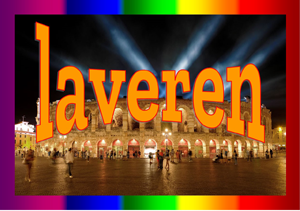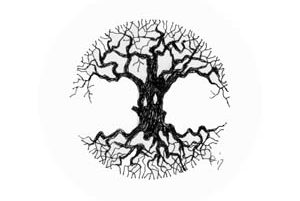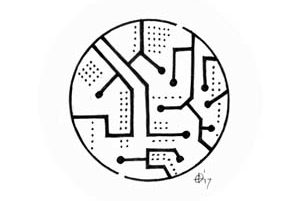Angela Roothaan
July 23, 2019, source: spinoza-ubuntu
I gave myself a challenge, by indicating I would talk about “Humanity’s place in nature, according to Spinoza and Ubuntu”, when asked to speak at the yearly Spinoza Summer Week.
I did so this morning, and it was a truly philosophical session. What I mean by that I will explain below.
Dutch Spinoza Society
 The summer week is organized by the Dutch Spinoza Society[1], a club that dedicates itself to maintaining the houses[2] where Spinoza lived, and making them accessible to the public, as well as to furthering the academic study of his work, and the study of his work by interested readers.
The summer week is organized by the Dutch Spinoza Society[1], a club that dedicates itself to maintaining the houses[2] where Spinoza lived, and making them accessible to the public, as well as to furthering the academic study of his work, and the study of his work by interested readers.
This happens in reading circles and in the week, each July, for which a theme is chosen, to which speakers are invited — this year it was: Spinoza and Ecological Thinking[3] . And it was done in a rural environment suitable to philosophize.
Eco-Humanism
As reading material (yes, the participants prepare themselves in a serious manner, which creates meaningful sessions) I had given them a series of propositions from part I of the Ethics, and an article by Michael Onyebuchi Eze — Humanitatis-Eco[4] (Eco-Humanism).
The article argues that African Philosophy on Ecology goes beyond the anthropocentrism present in Western-style Environmental Ethics, by focusing on a decentered, Ubuntu-style, cosmology of nature.
The main point, as I pointed out: we should forego the desire to ‘fix’ the environment we need for our species, and start to learn about the sacredness of trees and rivers, as well as of the relations of the living and the not-yet-living generations.
A certain awe, materially practised (don’t destroy the bark of a tree that protects your village), will change the human relation to nature in a more profound manner than moral prescriptions for protection of environments can.
Ubuntu
We read quotes from the article, as well as from and about Ramose, Mbiti and Tempels. The upshot: a certain orientation in life is more important for ecology than technological fixes driven by limited perspectives (we should save species X).
This orientation is informed by the idea that all of nature — be it in individual creatures or in species, or even forces such as wind or water, is an expression of ntu (divine energy) that flows through all being (ubu).
This view — I say it hesitantly, translating in a western philosophical word — means there is a certain subjectivity, a certain awareness in all the differentiations that make up ubuntu-nature.
Spinoza
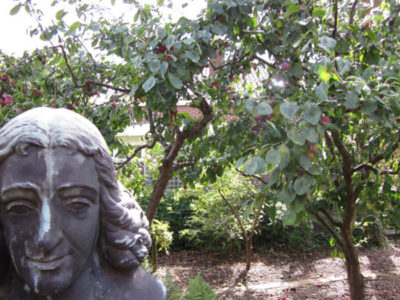 This was an imperfect communal attempt at dialogical, intercultural reading, as all dialogical crossing of worlds is by necessity.
This was an imperfect communal attempt at dialogical, intercultural reading, as all dialogical crossing of worlds is by necessity.
Now we took the next step: to try to elucidate this through Spinoza’s ideas on conatus and immanent causation — and vice versa. These words were key, where Spinoza says that in the same way in which we may say that God is its/her/his own cause, we may say that it/he/her is cause of all things. (Proposition 25, part I).
Every individual and individuated being thus, against the Aristotelian mainstream that declares it to be contingent, gains a certain necessity and inner divine-ness. This does not mean — I warned — that one can deify one’s ego.
What is divine is this power to differ, to vary, to be individually different itself, not the form which it takes. The creative force, so to speak — my audience paused and wondered — the ‘ntu’.
So now I had done it, I had used that African concept to explicate Spinoza’s idea of immanence.
Metaphysics?
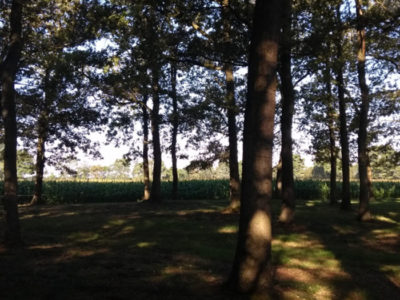 Followed a discussion whether Spinoza should be understood to be a metaphysician, and what ‘metaphysics’ means when it doesn’t involve transcendence.
Followed a discussion whether Spinoza should be understood to be a metaphysician, and what ‘metaphysics’ means when it doesn’t involve transcendence.
Spinoza ‘naturalized’ metaphysics, I said — claiming there is no ‘beyond nature’, but there is a beyond our distorted, desire driven understandings of the world as revolving around us (anthropocentrism).
And now ubuntu — is it metaphysical? In this Spinozistic sense, perhaps? I argued yes, when we understand that ubuntu thinking of nature doesn’t recognize the Cartesian dualistic cleft in the world that Spinoza had to deal with to begin with. The physical and the spiritual (matter and mind, thinking and extension) are not separated, thus the metaphysical is always already in the changing, contiguous phenomena we perceive.
I am not against powerpoints
This was not a lecture, I called this morning a ‘session’ on purpose.
I provided the materials and the main questions, which then interacted with the questions of the audience (the discussion on ‘metaphysics’ was not prepared but arose there and then) and led to a kind of shared, while individually diverse, certainty we had grown in understanding.
One participant came to me and thanked me ‘for not using a powerpoint’ — they overload you with knowledge, he said, and there is no shared learning and thinking.
Well that made my day of course — I am not against powerpoints, they can be very stimulating in the right context, but this — reading texts and discussing them from shared questions — truly philosophizing — remains the best!
Notes
[1] https://www.spinozahuis.nl/spinoza-museum-rijnsburg/
[2] https://www.spinozahuis.nl/voorbeeld-pagina/
[3] https://www.spinozahuis.nl/wp-content/uploads/2019/05/Programma-ZOMERWEEK-2019-.pdf
[4] https://www.academia.edu/35650339/Humanitatis-Eco_Eco_Humanism_An_African_Environmental_Theory

